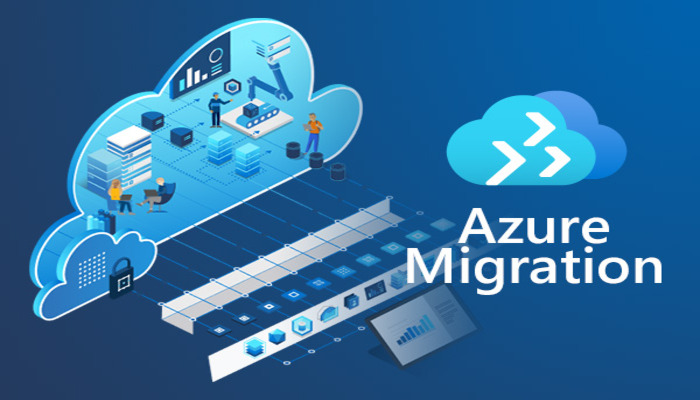15
+
YEARS OF
EXPERIENCE
1000
+
SUCCESSFUL
Projects
80
+
Satisfied
Clients

Azure Virtual Desktop Migration Services: Elevate Your Workspace with TechCloud IT Services L.L.C.
In the ever-evolving digital era, businesses are continually seeking advanced solutions to improve efficiency, security, and flexibility. One such solution is the Azure Virtual Desktop (AVD), a comprehensive desktop and app virtualization service hosted on Microsoft Azure. TechCloud IT Services L.L.C., also known as Cloud Technologies, specializes in seamless Azure Virtual Desktop migration services, helping businesses transition smoothly to a modern, cloud-based environment. This guide provides potential clients with a detailed understanding of the benefits and processes involved in Azure Virtual Desktop migration, as facilitated by TechCloud IT Services L.L.C.
What is Azure Virtual Desktop?
Azure Virtual Desktop (AVD) is a cloud-based service that delivers a fully managed virtual desktop infrastructure (VDI). It allows businesses to provide a consistent and secure desktop experience for their employees, accessible from anywhere and on any device. With AVD, organizations can improve productivity, enhance security, and reduce costs associated with traditional desktop environments.







Benefits of Azure Virtual Desktop Migration
Migrating to Azure Virtual Desktop with TechCloud IT Services L.L.C. offers numerous advantages for businesses:
Enhanced Flexibility: AVD provides a consistent desktop experience across various devices, enabling employees to work from any location. This flexibility supports remote work and enhances productivity.
Scalability: Azure Virtual Desktop allows businesses to easily scale their IT infrastructure up or down based on demand. TechCloud IT Services L.L.C. ensures that your migration to AVD is scalable, allowing you to adjust resources as needed.
Improved Security: Security is a top priority in the digital age. Azure Virtual Desktop includes robust security features such as multi-factor authentication, data encryption, and regular security updates. TechCloud IT Services L.L.C. implements these security measures to protect your data during and after migration.
Cost Efficiency: By migrating to Azure Virtual Desktop, businesses can reduce costs associated with maintaining on-premises infrastructure. TechCloud IT Services L.L.C. helps clients optimize their IT spending by transitioning to cost-effective cloud solutions.
Streamlined Management: Azure Virtual Desktop simplifies IT management by centralizing administrative tasks and providing powerful management tools. TechCloud IT Services L.L.C. assists clients in leveraging these tools for efficient and streamlined IT operations.
Services Offered by TechCloud IT Services L.L.C.
TechCloud IT Services L.L.C. provides a comprehensive suite of Azure Virtual Desktop migration services designed to ensure a seamless transition. Here’s an overview of the key services offered:
Migration Planning and Assessment: Successful migration begins with thorough planning and assessment. TechCloud IT Services L.L.C. conducts a detailed analysis of your current IT environment, identifying potential challenges and designing a tailored migration strategy.
Data Migration: Moving data to the cloud is a critical component of Azure Virtual Desktop migration. TechCloud IT Services L.L.C. ensures secure and efficient data migration, minimizing downtime and ensuring data integrity.
Application Compatibility Testing: Compatibility of applications with Azure Virtual Desktop is crucial for a smooth transition. TechCloud IT Services L.L.C. conducts comprehensive application compatibility testing, ensuring that all critical applications function seamlessly post-migration.
Deployment and Configuration: Setting up and configuring Azure Virtual Desktop involves multiple steps. TechCloud IT Services L.L.C. handles the deployment and configuration process, ensuring that your AVD environment is optimized for performance and security.
User Training and Support: Change can be challenging, especially for end-users. TechCloud IT Services L.L.C. provides training and support to help employees adapt to the new Azure Virtual Desktop environment, ensuring a smooth transition and minimal disruption.
Ongoing Management and Optimization: Post-migration, TechCloud IT Services L.L.C. offers ongoing management and optimization services to ensure that your Azure Virtual Desktop environment continues to meet your business needs. This includes regular updates, performance monitoring, and security assessments.
Microsoft Modern Workplace IT Support
We specialize in delivering top-tier networking and connectivity solutions tailored to meet the distinct needs of businesses across various industries.Modern Workplace Success
Achieve business growth with a successful modern workplace strategy, enhancing productivity, security, and employee engagement.Secure Modern Workplace
Implement a security-first modern workplace with advanced protection, compliance, and endpoint management solutions to safeguard business data.
Why Choose TechCloud IT Services L.L.C.?
Selecting the right partner for Azure Virtual Desktop migration is crucial for a successful transition. Here’s why TechCloud IT Services L.L.C. is the ideal choice:
Expertise and Experience: With years of experience in IT services and a team of certified professionals, TechCloud IT Services L.L.C. brings extensive knowledge and expertise in Azure Virtual Desktop migration.
Client-Centric Approach: At TechCloud IT Services L.L.C., the client’s needs come first. The company takes a personalized approach to understand your specific requirements and tailor migration solutions accordingly.
Innovative Solutions: Staying ahead in the IT landscape requires innovation. TechCloud IT Services L.L.C. leverages the latest technologies and best practices to provide cutting-edge migration services.
Proven Track Record: TechCloud IT Services L.L.C. has a proven track record of successful Azure Virtual Desktop migrations, with numerous satisfied clients attesting to their expertise and dedication.
Case Studies
TechCloud IT Services L.L.C. has successfully assisted various clients in migrating to Azure Virtual Desktop. Here are a couple of case studies highlighting the benefits:
Manufacturing Firm: A manufacturing firm needed to enhance remote work capabilities. TechCloud IT Services L.L.C. implemented Azure Virtual Desktop, providing employees with secure remote access to their desktops and applications, resulting in improved productivity and flexibility.
Financial Institution: A financial institution required a scalable and secure IT solution to support growth. TechCloud IT Services L.L.C. conducted a seamless Azure Virtual Desktop migration, ensuring data security and compliance with industry regulations.





Conclusion
In conclusion, Azure Virtual Desktop migration with TechCloud IT Services L.L.C. offers numerous benefits for businesses looking to modernize their IT infrastructure. From enhanced flexibility and improved security to cost efficiency and streamlined management, TechCloud IT Services L.L.C. provides tailored Azure Virtual Desktop migration services that meet your unique needs. By choosing TechCloud IT Services L.L.C., you can ensure a smooth and efficient transition to Azure Virtual Desktop, enabling your business to thrive in the digital age.
As a result of increasing number of business expanding to the United Kingdom market we are offering services of Azure Virtual Desktop Migration Services in London

answer time
satisfaction
score
on initial call
same business
day





